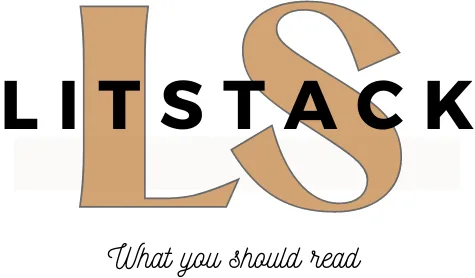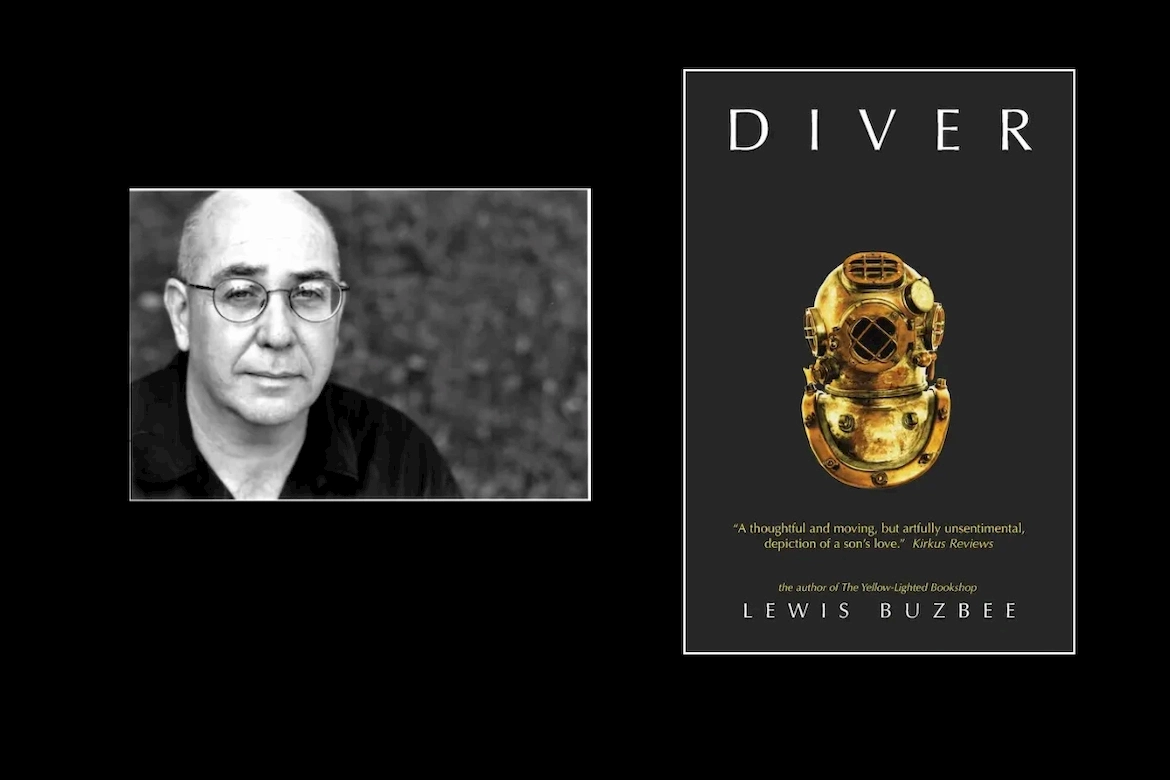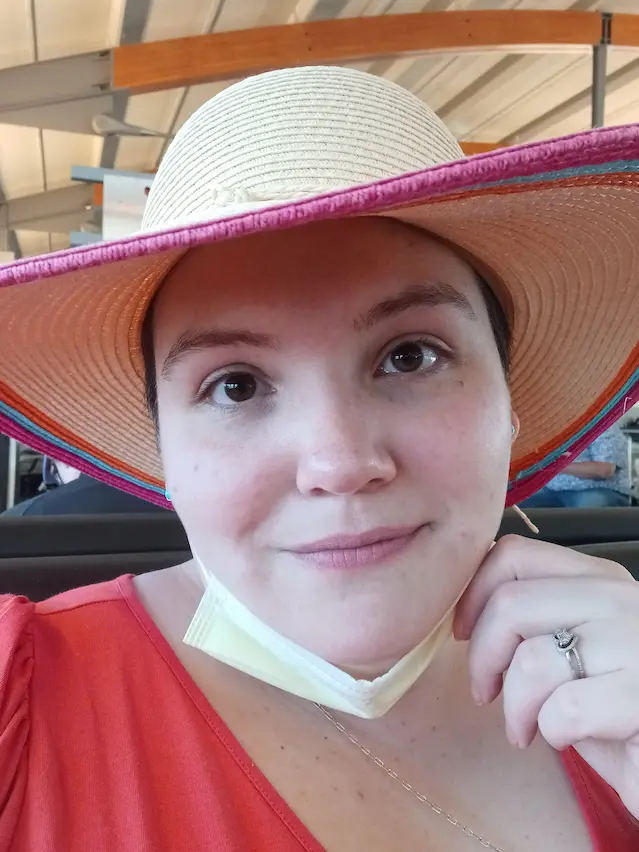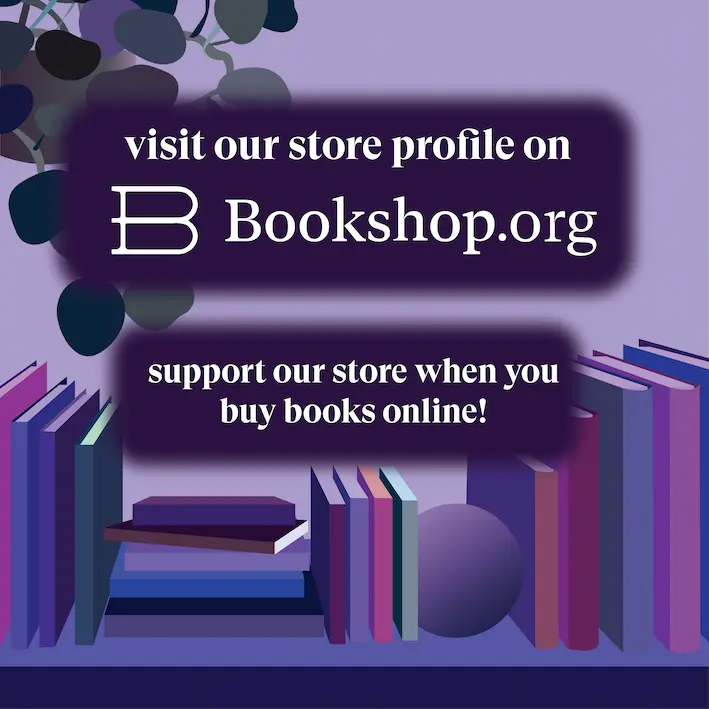In This LitStack Interview of Lewis Buzbee, Author of Diver
Allie Coker Interviews Lewis Buzbee, Author of Diver
The morning I sit down at my computer to interview Lewis Buzbee, he informs me he’s had an easy-going start to the day at his home on the west coast. A late wake-up, coffee, and crossword—it’s the simple pleasures in life. Flanked by books in his office, his demeanor instantly strikes me as humble and humorous, yet deeply serious about reading and writing. With the press tour for his newest novel, Diver, coming to a close, he has been enjoying the experience and has just completed a Deep Sea podcast recording as well. Conversation flows seamlessly as I begin to inquire about his newest publication:
AC: Diver is a novel that defies a linear timeline while still telling a cohesive story that readers can follow. What was the entry point for you? Did you write it in chronological order and restructure it later?
LB: Well, the book came as a surprise to me post-lockdown. It was the 50th anniversary of Kent State and these memories were unlocked. So, I wrote them down one at a time. I didn’t want the retrospective to come in, I didn’t want to force memories into a narrative, so I allowed each one to be a shard-piece of the mosaic of my father’s life and life with my father. I had 47 shards on 3×5 index cards, and one character’s piece was the chronological spine throughout the book. I think you can end up writing falsely if you force writing into form sometimes. I didn’t necessarily write them in order, but I wrote them intentionally so they would add up chronologically.


AC: Do you feel like Diver is a big departure from your other novels?
LB: The difference is in the way I composed it. With my other books, I usually spend 6 months staring out the window, scribbling a ton of things in my notebooks, doing research if I need to, and building the novel up in my head, not with an outline but with a sense of knowing where I want it to begin and end and move along that line. For Diver, it took about two and a half years to write which for me is rather slow for a first draft. I tended to labor over each shard once it came to me instead of finishing the draft and then going through tightening and finding the music. But this time I allowed it to flow organically during composition so I might write every few days instead of working on it consecutively.
AC: In addition to the books you’ve written for adults, you’ve had 3 middle grade novels published as well. Can you speak a little to that?
LB: I was very lucky as a young bookseller, I was 18, to be mentored by three astounding book women who made it part of their mentorship to impress upon me how complex and deeply pleasurable literature for younger readers could be. And since then, I’ve always wanted to write for younger readers. After Yellow-Lighted Bookshop came out, which was successful, I had the opportunity and thought this is a good time to do that. For me it’s not deciding what the age group and genre will be. It’s knowing what the story will be and where the main character stands, which is incredibly important when writing for younger readers. In middle grade and young adult literature, the character is usually looking forward towards the start of their lives whereas in adult novels there’s a certain amount of looking back. There are so many [titles] I think of as great books, not just great books for kids. Some of my colleagues have looked down on me because they see it as ‘just’ a kid’s book. They think I rhyme cat with hat, and I’m done. For me, I take it very, very seriously. I think young readers are more challenging to write for because they have all the time in the world, and they will call you out on your bullshit at any time and they will look up everything. I respect them as readers greatly and I want to meet that challenge of treating them as equals. They are super smart, and they pick up on everything. In all my middle grade novels there’s an adult. Not the savior, not the villain but a sort of companion. Kids at that age sometimes get abandoned so as a writer, I try to provide this companion, and it can be fun to be standing next to them and watching.


AC: Is there an idea you’ve had percolating that you’d love to write about?
LB: I do have an idea in the creative pipeline that I’ve been thinking about for some time. Recently there has been a slew of women writers retelling Greek myths- Madeline Miller, Natalie Haynes, and they are so wonderful. So, the book I’m noodling with, I’m simply calling Boy and the narrator is a 14-year-old boy whose arrived on the beaches of Troy as a kitchen slave. He’s 9 when he first arrives, just abducted, brought to the beaches then as the book begins, he’s 14 and he’s been conscripted to go into his first battle. I want to look at that perspective, not the heroes but who are the poor personnel who are the slaves and because of his age and his station, he’s cleaning up the dishes and stuff, he gets to hear and see everything so it explores not just the character’s male perspective but also themes of class and age. And in the end, it’s a book about how horrible men are- the greed, the vanity, the brutality. Everything we see in the world today. There are so many stories I want to tell and writing a novel is such a commitment, so we’ll see if my noodling on that idea persists.
AC: What advice would you give to published authors? Or unpublished writers?
LB: For published writers, I would encourage them to learn more about the book business and the bookselling business. Frankly, I would urge them to get a part-time job in a bookstore to get the basics of the business but also really something about what readers really want. For me, it’s always about the reader’s experience. I would want them to really engage a little bit more that way. There’s a certain passivity that can come along. Oh, I’m the writer and I’ve published and I’m gonna wait and the acclaim shall happen. You don’t have to be the annoying entrepreneur but go in and take your local bookseller out to lunch and talk to them. The literary community is a very small one and always has been and as writers if we can be materially invested in it and helpful in it then that just solidifies the community more and makes you a part of this thing. For unpublished writers, don’t be deterred if the general themes or ideas you have are already being written about. An agent will always ask you for comparable titles anyway, so it’s not a bad thing if others are writing about the same thing too. There is nothing new under the sun, every story has already been told. It’s your take on it, the singularity of your novel that’s gonna make it stand out. Look at the trends, but when it comes down to doing the actual writing, forget all that. Focus on the book you most want to write. Richard Rodriguez, a great CA writer said, ‘Not what’s next but what’s new.’ If you’re writing cynically, if you’re writing toward the market you have to remember there’s a million unpublished bestsellers. But if you’re writing what you want to write, what you love to write, I think your odds are much better that you’ll find a home. Remember too that along the way, people are gonna quit, people are gonna stop. So, you’re getting better one hopes and there’s sort of less competition at that kind of level if that makes any sense. You continue to write and it’s not like a sport, you can write no matter how old you get. The goal is to not stop.


AC: Have you seen your writing change greatly since your first book came out in 1990?
LB: You know, I look back at my first book and think, I still like it. It’s a nice little book; I can still see me in there. I still write longhand for my first drafts which I love and can’t keep away from. But I’ll tell you what’s changed, in 1998, my wife and I had a daughter, and I was writing a 600 page novel about single people in San Francisco and the minute we had our daughter I said forget that. That was a change for me. It shifted the focus of my writing realizing there are things that are really much more urgent than who you’re gonna sleep with. I’d like to think that brought a new depth to my work. I don’t think I would have written Diver without that big sea change. I’m trying to write books that are not ironic. There’s irony in them, some of the characters are, but not from an overall ironic stance.
AC: Is there an impression you hope to leave readers with?
LB: I really want to be able to see the world, but that’s me as a reader. As a writer, I also want that. Of course, I want to entertain you for several hours. I feel what I’ve always wanted to do with my writing, and I’m feeling it really strongly right now with the responses I’m getting from Diver, is I want to provoke in the reader a sense that they can then go look at their own lives. What I’ve said about my family in 1969 opens up something about their family wherever or just to think about the world in a different way without me guiding them. It’s a small ‘p’ provocative.
~Allie Coker
About Lewis Buzbee
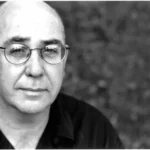
Lewis Buzbee is the author of The Yellow-Lighted Bookshop, Blackboard, After the Gold Rush, Fliegelman’s Desire, and First to Leave Before the Sun (with Dave Tilton), as well as three award-winning books for younger readers, Steinbeck’s Ghost, The Haunting of Charles Dickens, and Bridge of Time. His essays, poems, stories, and interviews have appeared in Lit Hub, GQ, The New York Times Book Review, Paris Review, ZYZZYVA, Black Warrior Review, Best American Poetry, and elsewhere. A long-time bookseller and publisher, he lives in San Francisco with his wife, the poet Julie Bruck, and not far from their adult child Maddy.
Other Titles by Lewis Buzbee

Other LitStack Resources
Be sure and look at our LitStack Reviews for our recommendations on books you should read, including reviews by Lewis Buzbee, Lauren Alwan, Allie Coker, Rylie Fong, and Sharon Browning.
Comment Using Emote
As a Bookshop, Malaprop’s, BAM, Barnes & Noble, Audiobooks.com, Amazon, and Envato affiliate, LitStack may earn a commission at no cost to you when you purchase products through our affiliate links.
